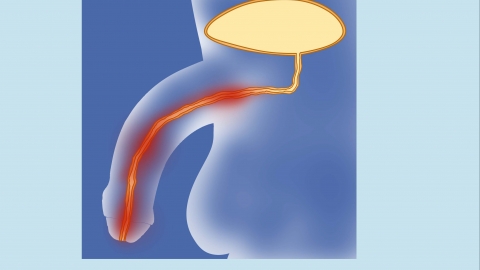How to treat non-gonococcal urethritis
Generally, non-gonococcal urethritis may be caused by improper personal hygiene, low immunity, chlamydia trachomatis infection, ureaplasma urealyticum and mycoplasma hominis, herpes simplex virus infection, and other factors. Measures such as general treatment and drug therapy can be taken for improvement. It is important to seek medical attention promptly and follow medical advice for treatment. Details are as follows:

1. Improper personal hygiene: Poor personal hygiene, such as not cleaning the urethral orifice regularly or using unclean sanitary products, may lead to infection of the urethra by pathogens such as chlamydia, genital mycoplasma, and ureaplasma urealyticum. These pathogens multiply in the urethra and cause inflammation, resulting in non-gonococcal urethritis. It is important to maintain good personal hygiene, clean the urethral orifice regularly, and use clean sanitary products.
2. Low immunity: A decline in immune function may weaken the body's resistance to pathogens, increasing the risk of urethral infection, triggering new infections, or worsening existing ones. Improve your diet, increase nutrient intake, and avoid spicy foods such as chili peppers and onions to enhance physical resistance.
3. Chlamydia trachomatis infection: Chlamydia trachomatis is one of the pathogens causing non-gonococcal urethritis and is transmitted through sexual contact. After infection, chlamydia trachomatis multiplies in the urethra and causes inflammation, resulting in a burning sensation during urination. Follow medical advice to use medications such as erythromycin enteric-coated tablets, roxithromycin tablets, and azithromycin capsules for anti-infective treatment.
4. Ureaplasma urealyticum and Mycoplasma hominis: Ureaplasma urealyticum and Mycoplasma hominis are common pathogens causing non-gonococcal urethritis. They are transmitted through sexual contact, multiply in the urethra, and cause inflammation, characterized by increased urethral discharge. Under a doctor's guidance, medications such as tetracycline tablets, doxycycline hydrochloride tablets, and levofloxacin hydrochloride capsules can be used for antibacterial treatment.
5. Herpes simplex virus infection: Herpes simplex virus infection is a common viral disease caused by the herpes simplex virus, primarily affecting the skin and mucous membranes. The virus is transmitted through sexual contact or other routes and replicates in the urethra, causing inflammation. Follow medical advice to use acyclovir ointment, penciclovir ointment, erythromycin ointment, and other medications for treatment, which can provide antiviral and anti-inflammatory effects.
In daily life, it is important to strengthen personal hygiene and preventive measures, such as regularly cleaning the urethral orifice, using clean sanitary products, and avoiding unsafe sexual practices.




